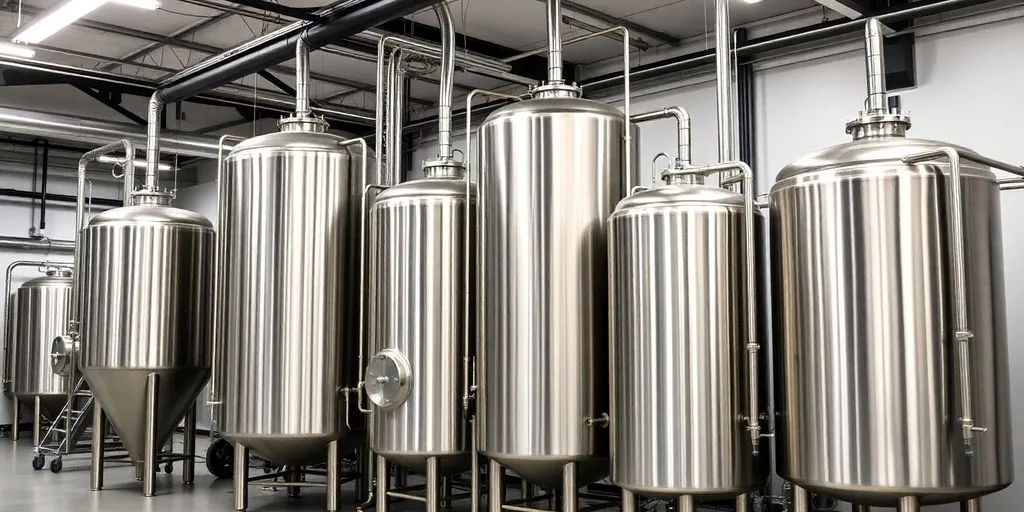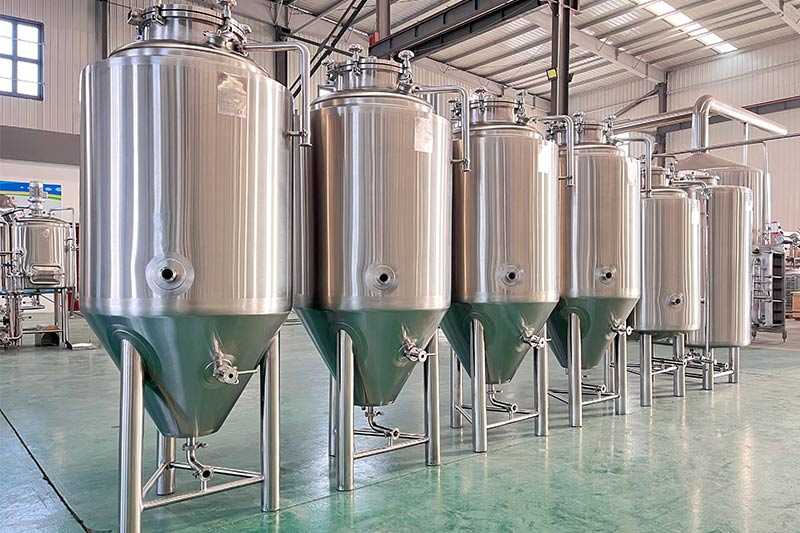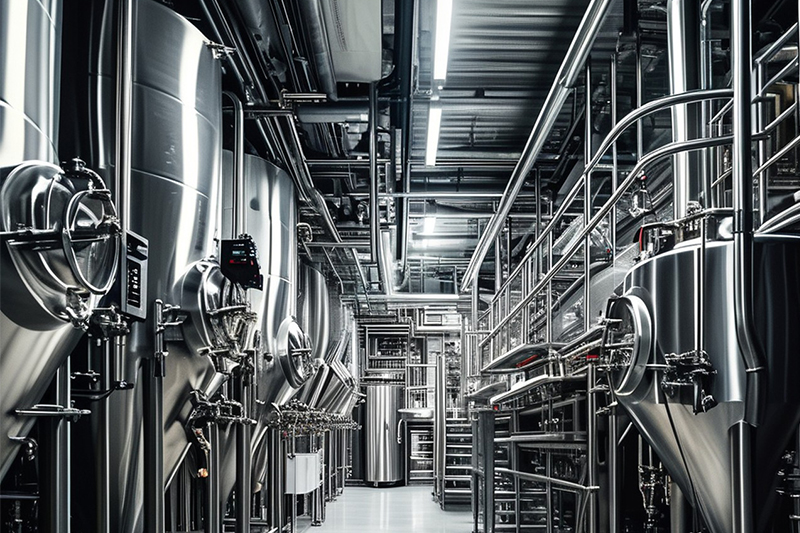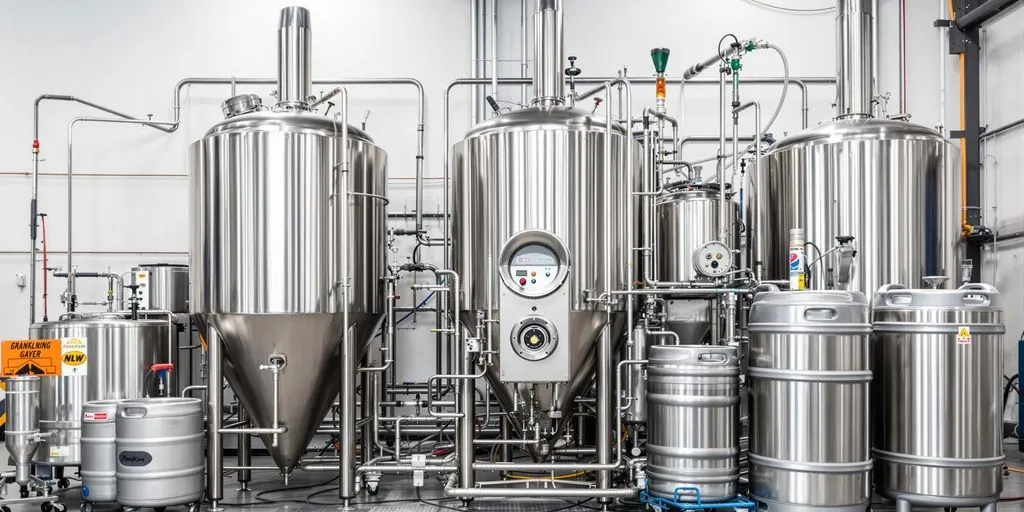Interested in crafting your own beer but not sure where to start? This comprehensive guide on beer brewing equipment is just what you need. We’ll walk you through everything from basic kits to advanced brewing systems. Whether you’re a budding home brewer or looking to upgrade your setup, this article will help you make the best choices for brewing quality beer at home.

Why Brew Your Own Beer at Home?
Brewing your own beer is a rewarding hobby that allows you to create unique flavors and styles. Home brewing offers:
- Creativity: Experiment with different grains, hops, and yeasts.
- Quality Control: Ensure only the best ingredients go into your brew.
- Cost Savings: Over time, brewing at home can be more economical than buying craft beer.
Brewing beer at home also connects you with a passionate community of brewers who share tips and recipes.
Essential Beer Brewing Equipment for Beginners
Starting with the right brewing equipment makes all the difference. Here’s what you need:
1. Brewing Kit
A basic brewing kit typically includes:
- Fermentation Bucket: A food-grade bucket with a lid for fermentation.
- Airlock and Stopper: Allows CO₂ to escape without letting air in.
- Hydrometer: Measures the beer’s alcohol content.
- Bottle Filler and Tubing: For transferring beer into bottles.
- Capper and Caps: To seal your bottles.
These kits provide everything you need to brew your first batch of beer.
2. Brew Kettle
The brew kettle is where you’ll boil your wort. Key features to consider:
- Size: At least 5 gallons to prevent boil-overs.
- Material: Stainless steel is durable and easy to clean.
- Volume Markings: Helpful for measuring liquid.
3. Fermenter
A fermenter is essential for the fermentation process. Options include:
- Plastic Buckets: Affordable and lightweight.
- Glass Carboys: Non-porous and easy to sanitize.
- Stainless Steel Conical Fermenters: For advanced brewers, offering temperature control and easy yeast harvesting.
4. Sanitizer
Sanitation is crucial in brewing. Use a no-rinse sanitizer to keep your equipment clean and prevent contamination.
5. Bottles or Kegs
Decide how you want to package your beer:
- Bottles: Requires capping equipment.
- Kegs: Faster and less labor-intensive but more costly upfront.
What to Look for in a Brewing Kit
Choosing the right brewing kit sets the foundation for successful brewing.
Contents
Ensure the kit includes:
- All Necessary Equipment: Fermenter, airlock, hydrometer, etc.
- Ingredient Kits: Some kits come with malt extract, hops, and yeast.
Quality
Look for:
- Durable Materials: Food-grade plastic or stainless steel.
- Ease of Use: Clear instructions and easy assembly.
Expandability
Choose a kit that allows you to upgrade as your skills improve.
Explore our Beer Brewing Systems designed for both beginners and advanced brewers.
How to Choose the Right Brew Kettle
The brew kettle is a vital part of brewing. Here’s what to consider:
Size and Capacity
- Beginner Size: 5-gallon kettles are standard for extract brewing.
- All-Grain Brewing: May require larger kettles, like 10-gallon or more.
Material
- Stainless Steel: Preferred for durability and ease of cleaning.
- Aluminum: Lightweight and conducts heat well but can react with acidic wort.
Features
- Volume Markings: For accurate measurements.
- Built-In Thermometer: Helps monitor temperatures.
- Valves and Fittings: For easier transfer of wort.
Check out our Stainless Steel Kettles that offer professional-grade quality.
The Importance of Fermentation and Fermenters
Fermentation is where the magic happens. Choosing the right fermenter is key.
Types of Fermenters
- Plastic Buckets: Cost-effective and easy to use.
- Glass Carboys: Allows you to see the fermentation process.
- Stainless Steel Fermenters: Offers better temperature control and longevity.
Features to Consider
- Airlock Compatibility: Essential for releasing CO₂.
- Ease of Cleaning: Smooth surfaces prevent bacteria buildup.
- Size: Ensure it’s large enough for your batch size, typically 6 gallons for a 5-gallon brew.

Grain Mills: Do You Need One?
If you’re venturing into all-grain brewing, a grain mill becomes important.
Why Use a Grain Mill?
- Freshness: Grinding grains just before brewing preserves freshness.
- Control: Adjust the crush size for better efficiency.
- Cost Savings: Buying grains in bulk can be more economical.
Types of Grain Mills
- Manual Mills: Affordable but require more effort.
- Electric Mills: Faster and easier but more expensive.
Discover our Grain Mills that cater to home brewers.
Wort Chillers and Why They’re Essential
Rapidly cooling your wort is crucial. Wort chillers help with this process.
Benefits of Using a Wort Chiller
- Prevents Contamination: Quick cooling reduces the risk of bacterial growth.
- Improves Clarity: Helps proteins precipitate out, resulting in clearer beer.
- Enhances Flavor: Reduces the chance of off-flavors developing.
Types of Wort Chillers
- Immersion Chillers: Coils submerged directly into the wort.
- Counterflow Chillers: Wort and cold water flow in opposite directions.
- Plate Chillers: Compact and efficient, using plates to transfer heat.
All-Grain vs. Extract Brewing: Which is Best?
Deciding between all-grain and extract brewing depends on your goals.
Extract Brewing
- Pros:
- Easier for beginners.
- Less time-consuming.
- Cons:
- Less control over the final product.
All-Grain Brewing
- Pros:
- Complete control over flavor and body.
- More cost-effective in the long run.
- Cons:
- Requires more equipment (e.g., mash tun, grain mill).
- More complex and time-intensive.
Temperature Control in Brewing
Maintaining proper temperature control is vital throughout the brewing process.
During Mashing
- Consistent Temperature: Essential for enzyme activity in all-grain brewing.
- Insulation: Use an insulated mash tun to maintain temperature.
During Fermentation
- Yeast Health: Yeast performs best within specific temperature ranges.
- Temperature Swings: Can lead to off-flavors.
- Solutions:
- Fermentation Chambers: Control the environment.
- Immersion Heaters or Coolers: Adjust temperatures as needed.
Upgrading Your Brewing Equipment
As you gain experience, you may want to upgrade your setup.
Advanced Equipment
- Conical Fermenters: Easier yeast harvesting and trub removal.
- Electric Brewing Systems: Precise control and convenience.
- Pump Systems: For transferring liquids without lifting heavy containers.
Consider our Commercial Brewery Equipment if you’re scaling up your production.

Automation
- Temperature Controllers: Automate heating elements.
- Digital Timers and Alarms: Manage brewing schedules.
Frequently Asked Questions
You’ll need a basic brewing kit, which includes a fermenter, airlock, hydrometer, bottles or kegs, and a brew kettle. Optional equipment like wort chillers and grain mills can improve your brewing experience.
A basic setup can cost between $100 to $200. As you advance, investing in higher-quality brewing equipment like stainless steel kettles or conical fermenters can increase costs.
In many countries, home brewing is legal for personal consumption. However, regulations vary, so check your local laws.
The brewing process takes about 4-6 hours on brew day. Fermentation lasts 1-2 weeks, and conditioning can take an additional 2 weeks.
Absolutely! Home brewing allows you to craft a wide range of beer styles, from ales to lagers, stouts to IPAs.
Yes, sanitation is critical to prevent contamination and ensure your beer ferments properly without off-flavors.
Key Takeaways
- Start Simple: Begin with a basic brewing kit and essential equipment.
- Quality Matters: Invest in good-quality stainless steel equipment for longevity.
- Sanitation is Crucial: Keep everything clean to produce quality beer.
- Temperature Control: Maintain proper temperatures during mashing and fermentation.
- Upgrade Gradually: As you gain experience, consider adding advanced equipment like conical fermenters or electric brewing systems.
Brewing your own beer is an exciting journey filled with learning and experimentation. With the right beer brewing equipment and supplies, you can craft delicious beers tailored to your taste.
Ready to start your brewing adventure?
Explore our Beer Brewing Equipment and Contact Us to get everything you need.

